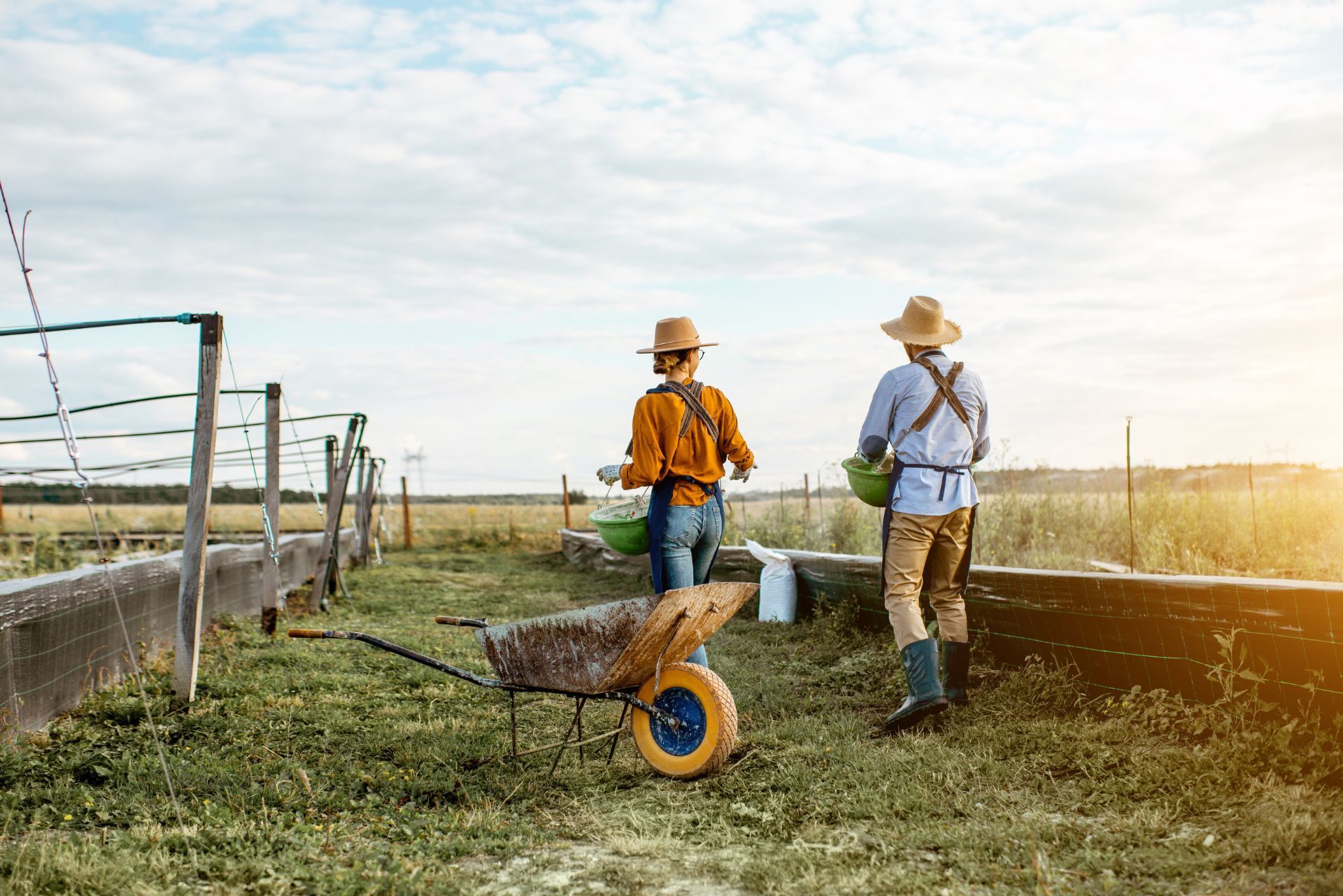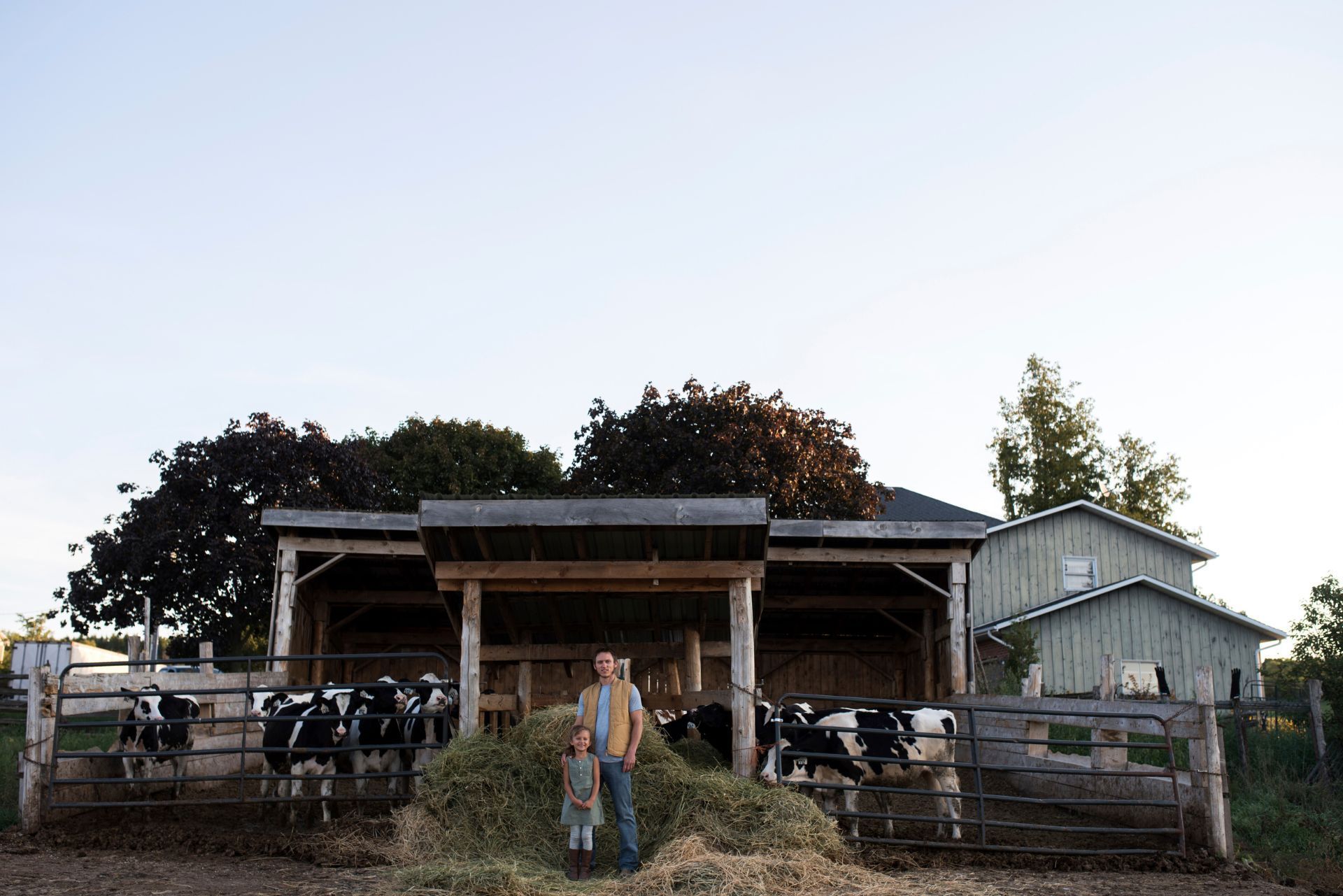
Top 3 Recommended Policies

Farm and ranch insurance is a vital aspect of agricultural operations in Pennsylvania. With its rich history in farming and ranching, the state offers a unique landscape that requires specialized insurance coverage. This article will guide you through everything you need to know about farm and ranch insurance in Pennsylvania, including types of coverage, factors to consider, and how to choose the right policy.
Understanding Farm and Ranch Insurance
Farm and ranch insurance is designed to protect agricultural businesses from various risks. These risks can include property damage, liability claims, and loss of income due to unforeseen events. Understanding the nuances of this insurance is crucial for farmers and ranchers looking to safeguard their investments.
What is Covered?
The coverage provided by farm and ranch insurance can vary significantly based on the specific policy and the needs of the operation. Generally, these policies cover:
- Property Damage: This includes coverage for buildings, equipment, and livestock. Natural disasters, theft, and vandalism are common causes of property loss.
- Liability Protection: If someone is injured on the farm or ranch, liability coverage can help cover legal costs and settlements.
- Business Interruption: If a disaster impacts the ability to operate, this coverage can help replace lost income.
Types of Policies Available
There are several types of policies available to farmers and ranchers in Pennsylvania. Understanding these can help in selecting the right coverage:
- Farmowners Insurance: This is similar to homeowners insurance but tailored for agricultural properties. It covers both the dwelling and the business aspects of the farm.
- Crop Insurance: Essential for farmers, this insurance protects against loss of crops due to natural disasters or market fluctuations.
- Livestock Insurance: This coverage safeguards against the loss of animals due to disease, accidents, or theft.
In addition to these primary policies, there are also specialized coverages that can be beneficial depending on the specific operations of the farm or ranch. For instance, some farmers may opt for equipment breakdown insurance, which covers the repair or replacement of essential machinery that may fail unexpectedly. This can be particularly important for operations that rely heavily on technology and machinery for planting, harvesting, and processing. Furthermore, pollution liability insurance is another consideration for those who use chemicals or fertilizers, as it protects against claims related to environmental damage caused by agricultural practices.
Factors to Consider When Choosing Coverage
When selecting a farm and ranch insurance policy, several factors should be taken into account to ensure comprehensive protection. The size and type of the operation play a significant role; larger farms with diverse crops or livestock may require more extensive coverage compared to smaller, specialized operations. Additionally, the geographical location can influence risk factors, such as susceptibility to natural disasters like floods or wildfires. It’s also important to assess the value of the assets being insured, including not only physical property but also the potential income that could be lost during a business interruption. Engaging with an insurance agent who specializes in agricultural policies can provide valuable insights and help tailor coverage to meet specific needs effectively.

Factors to Consider When Choosing Insurance
When selecting farm and ranch insurance, several factors come into play. Each operation is unique, and understanding these factors can lead to better coverage decisions.
Size and Type of Operation
The size and type of the farming or ranching operation significantly influence insurance needs. A large commercial farm will have different requirements than a small family-run operation. Specific considerations include:
- Type of Livestock or Crops: Different crops and livestock may carry different risks and insurance needs.
- Scale of Operations: Larger operations may require more comprehensive coverage due to higher asset values.
Additionally, the specific practices employed within these operations can also dictate insurance requirements. For instance, organic farms may need coverage that specifically addresses the unique risks associated with organic certification and compliance. Similarly, ranches that incorporate agritourism may require liability coverage that protects against accidents involving visitors. Understanding the nuances of the operation helps in tailoring an insurance policy that not only covers assets but also mitigates liabilities associated with the specific agricultural practices.
Location and Environmental Risks
The geographical location of the farm or ranch can also impact insurance needs. Pennsylvania has diverse climates and terrains, which can lead to various environmental risks, such as:
- Flooding: Certain areas are prone to flooding, which can damage crops and property.
- Severe Weather: Storms, hail, and winter weather can all pose risks to agricultural operations.
Moreover, local regulations and zoning laws can further complicate insurance decisions. For instance, farms located near waterways may face stricter regulations regarding runoff and pollution, which could necessitate additional liability coverage. Additionally, understanding the historical weather patterns in a specific area can help farmers anticipate potential risks and seek appropriate coverage. For example, regions that frequently experience drought may benefit from crop insurance that protects against yield loss due to insufficient rainfall. By considering these environmental factors, farmers can better prepare for the unpredictable nature of agriculture and ensure they have the necessary protection in place.
The Importance of Liability Coverage
Liability coverage is one of the most critical components of farm and ranch insurance. It protects against claims resulting from injuries or damages that occur on the property. This type of insurance not only safeguards the financial stability of the farm or ranch but also provides peace of mind to the owners, allowing them to focus on their operations without the constant worry of potential lawsuits.
Common Liability Risks
Farm and ranch operations face unique liability risks that can lead to costly claims. Some common scenarios include:
- Visitor Injuries: If a guest is injured while visiting the farm, the owner could be held liable. This can include anything from slips and falls to accidents involving farm equipment.
- Employee Injuries: Farms often employ workers, and accidents can happen, leading to potential claims. This risk is heightened by the nature of farm work, which often involves heavy machinery and unpredictable animals.
Additionally, liability coverage can extend to incidents involving livestock. For instance, if an animal escapes and causes an accident on a public road, the farm owner may be held responsible for damages. Such scenarios not only pose a financial threat but can also impact the farm's reputation within the community. Understanding these risks is crucial for any farm or ranch owner, as they can often be mitigated through proper safety protocols and training.
Legal Requirements
In Pennsylvania, certain types of liability insurance may be legally required. Understanding these regulations is essential for compliance and protection. It’s advisable to consult with an insurance professional to ensure all legal requirements are met. Moreover, staying informed about changes in legislation can help farm owners adapt their insurance policies as needed. For example, new laws may introduce additional coverage requirements or modify existing ones, making it imperative to regularly review insurance policies and coverage limits.
Furthermore, engaging with local agricultural organizations can provide valuable insights into best practices for liability coverage. These organizations often offer resources, workshops, and networking opportunities that can help farm owners stay ahead of potential risks. By fostering a proactive approach to liability management, owners can not only protect their assets but also contribute to a safer farming community overall.
Cost of Farm and Ranch Insurance
The cost of farm and ranch insurance can vary widely based on several factors. Understanding these can help in budgeting for insurance expenses.
Factors Influencing Cost
Several factors can influence the cost of insurance premiums, including:
- Type of Coverage: Comprehensive policies that cover a wide range of risks will generally cost more than basic coverage.
- Location: Areas with higher risks may see increased premiums.
- Claims History: A history of claims can lead to higher premiums.
In addition to these primary factors, the size and scale of the operation also play a significant role in determining the insurance cost. Larger farms with extensive livestock or crops may require more specialized coverage, which can increase premiums. Furthermore, the type of farming or ranching activities being conducted can also influence costs; for example, organic farms may have different risk assessments compared to conventional farms due to varying regulatory requirements and market risks.
Average Premiums
While costs can vary, understanding average premiums can provide a benchmark. In Pennsylvania, farm and ranch insurance premiums can range from a few hundred to several thousand dollars annually, depending on the factors mentioned above. It's important to note that these averages can shift based on market trends, changes in agricultural practices, and even economic conditions affecting the farming industry. For instance, during times of drought or natural disasters, premiums may rise as insurers adjust their risk models to account for increased potential losses.
Moreover, many insurance providers offer discounts for implementing risk management practices, such as installing security systems or participating in safety training programs. These proactive measures not only help reduce the likelihood of claims but can also lead to significant savings on premiums. As farmers and ranchers become more educated about their insurance options, they can better navigate the complexities of coverage and find policies that best suit their unique needs and financial situations.
How to Choose the Right Insurance Provider
Choosing the right insurance provider is as important as selecting the right policy. A knowledgeable and reliable provider can make all the difference in navigating the complexities of farm and ranch insurance. The right provider not only offers tailored coverage but also serves as a partner in risk management, helping you to protect your livelihood against unforeseen events.
Research and Reviews
Before selecting an insurance provider, conducting thorough research is essential. Look for reviews and testimonials from other farmers and ranchers to gauge the provider's reputation and customer service. Online forums and local agricultural associations can be invaluable resources for gathering insights. Additionally, consider reaching out to peers in your community to discuss their experiences, as personal recommendations often carry significant weight in the decision-making process.
Expertise in Agriculture
It’s crucial to choose an insurance provider with expertise in agricultural insurance. They should understand the unique risks and challenges faced by farmers and ranchers in Pennsylvania. This includes knowledge of local weather patterns, crop cycles, and livestock management practices. A specialized provider can offer insights into coverage options that are specifically designed for your operation, whether it’s crop insurance, liability coverage, or equipment protection. Furthermore, they should be able to assist you in navigating state regulations and available subsidies that can further enhance your coverage strategy.
Customer Support and Claims Process
Another critical factor to consider is the level of customer support offered by the insurance provider. A responsive and accessible customer service team can provide peace of mind, especially during stressful times such as filing a claim after a loss. Investigate how the provider handles claims and whether they have a streamlined process in place. A provider that prioritizes quick and fair claims resolution can significantly reduce the stress associated with unexpected events, allowing you to focus on what you do best—running your farm or ranch.
Financial Stability
Finally, assessing the financial stability of an insurance provider is essential. You want to ensure that the company you choose has a strong financial foundation and a good track record of paying claims. Research their ratings from independent agencies like A.M. Best or Standard & Poor’s, which evaluate the financial health and reliability of insurance companies. A stable provider will be better equipped to meet its obligations and support you through challenging times, ensuring that your investment in insurance truly protects your assets and future.

Working with an Insurance Agent
Working with an insurance agent can simplify the process of obtaining farm and ranch insurance. An experienced agent can provide valuable insights and help tailor coverage to meet specific needs. They understand the nuances of agricultural operations and can navigate the complexities of insurance policies, ensuring that farmers and ranchers are adequately protected against potential risks.
Benefits of Using an Agent
Utilizing an insurance agent offers several advantages:
- Personalized Service: Agents can provide tailored recommendations based on the unique aspects of the operation.
- Claims Assistance: In the event of a claim, an agent can guide the policyholder through the process, ensuring all necessary steps are taken.
Additionally, agents often have access to a variety of insurance products from multiple carriers, allowing them to compare coverage options and find the best fit for their clients. This breadth of knowledge can lead to cost savings, as they can identify discounts and incentives that may not be readily apparent to the average policyholder. Furthermore, agents can help clients understand the fine print of their policies, ensuring they are aware of any exclusions or limitations that could affect their coverage in the event of a loss.
Finding the Right Agent
When searching for an insurance agent, consider their experience in agricultural insurance and their understanding of Pennsylvania's specific needs. Recommendations from fellow farmers can also be a valuable resource. It’s also beneficial to look for agents who are involved in local agricultural organizations or community events, as this involvement often indicates a deeper commitment to understanding the unique challenges faced by farmers in the area. Meeting with potential agents to discuss your specific needs can provide insight into their approach and help establish a rapport that is essential for a successful working relationship.
In addition to standard farm and ranch insurance, there are additional coverage options that can enhance protection. These can be particularly beneficial for specific operations or unique risks.
Equipment Breakdown Insurance
This coverage protects against the cost of repairing or replacing equipment that breaks down unexpectedly. Given the reliance on machinery in agriculture, this type of insurance can be invaluable.
Pollution Liability Insurance
For farms that use fertilizers and pesticides, pollution liability insurance can provide coverage in case of environmental damage. This is an essential consideration for operations concerned about their environmental impact.
Conclusion
Pennsylvania farm and ranch insurance is a critical component of protecting agricultural operations. By understanding the various types of coverage, factors influencing costs, and the importance of liability protection, farmers and ranchers can make informed decisions. Working with knowledgeable insurance agents and choosing the right provider can further enhance the security of these vital operations.
As the agricultural landscape continues to evolve, staying informed about insurance options and requirements will ensure that Pennsylvania's farmers and ranchers remain protected and sustainable for generations to come.
Contact Us

